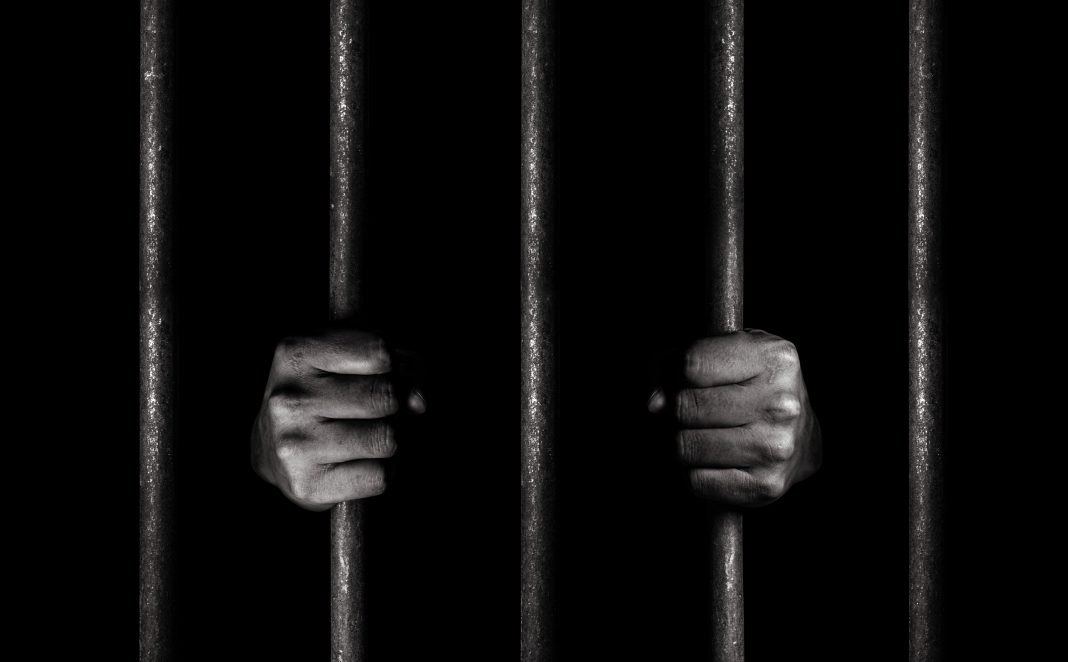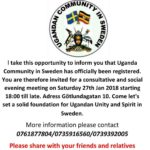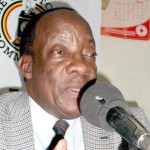Ugandans living in Southern Africa have urged parliament to help rescue nationals who have been jailed in Zambia and Zimbabwe.
Those languishing in jails were arrested as they attempted to cross into South Africa without valid travel documents that could help them travel through the two countries. They have been detained for several months without signs of their cases being disposed of.
The matter that now intertwines three governments was raised during a meeting with Uganda’s representatives to the Pan African Parliament (PAP) and the leadership of the Confederation of Ugandans in Southern Africa (COUSA) in South Africa on October 24, 2019.
“There are more than 40 Ugandans rotting in jail in Zimbabwe and several others in Zambia,” Moses Ssentongo, the COUSA President General told the meeting, adding that there is limited consular support to the incarcerated Ugandans.
Whilst Uganda has a high commission in Zambia, there is none in Zimbabwe meaning that Ugandans in distress can only be assisted by the High Commission in Pretoria, hundreds of kilometres away. Uganda and Zimbabwe continue to enjoy cordial relations so much that on October 9, 2019, President Emmerson Mnangagwa was a special guest at Uganda’s 57th Independence Day celebrations.
COUSA purposes to bring together and promote the social and economic development of the Ugandan community living in South Africa, Eswatini (formerly Swaziland), Lesotho, Botswana, Namibia and Zimbabwe.
A wide range of matters was discussed at the meeting including the tax regime and recent xenophobic attacks in South Africa in which some Ugandans were affected, with one losing a building to arsonists.
“We submitted our losses to the Embassy and also to the President when he was in Pretoria. However, we have since not heard from them,” Ssentongo said.
“Nigeria and Ghana have pushed South Africa to make concessions in regard to compensating their citizens who lost property during the xenophobic crisis. How do you offer lip service to somebody who has lost 10 years of hard work in just one day?” Raymond Wamala from the Organisation of Ugandans in South Africa, Johannesburg Chapter said.
Ssentongo, who also requested for removal of restrictions on visas and acquiring the “Go Home”, an emergency travel document issued by the Uganda High Commission further passionately appealed for government assistance in repatriating the bodies of Ugandans who die in the country.
“The cheapest we can spend on repatriation is South African Rand 24,000 (Shs6 million). Some Ugandans have ended up being buried here, not by choice but because of circumstances,” he said.
The association is currently stranded with the bodies of four Ugandans who perished in an accident on Saturday, 19 October 2019 in Kimberly, Northern Cape.
With the general elections due in 2021, they requested that the Electoral Commission works out mechanisms that allow the diaspora to vote.
The leader of Uganda’s delegation to PAP, Jacquiline Amongin, told the COUSA members that they had raised the issue of xenophobia attacks in Parliament back home which then requested the South African government to take measures to end the violence permanently.
Uganda’s other representatives at PAP are Prof. Morris Ogenga Latigo, Anifa Kawooya, Felix Okot Ogong and James Kakooza.
“We are going to raise these issues with the line ministers not only to cater for the concerns of Ugandans in Southern Africa but Ugandans the world over,” Amongin said and pledged to present their detailed report to Parliament.
Kawooya said there was need to put into place systems that work for all and advised COUSA to work hard at maintaining a good relationship with the High Commissions in their territories.
“What affects you, affects me,” she said, adding that terrorism and human trafficking had made governments around the world jealously guard their borders.
Okot Ogong encouraged them to legalise their status in the host countries before seeking assistance.
“The government back home wants to work with organised people. Organise yourselves and then ask for some money to support your activities,” he said.








[…] READ MORE FROM ORIGINAL SOURCE […]